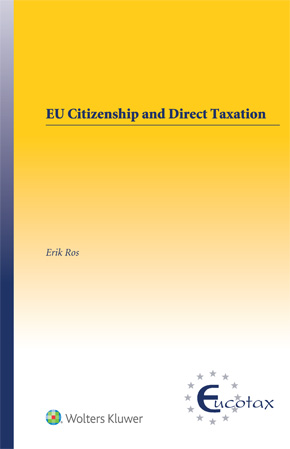
EU Citizenship and Direct Taxation is the first book to investigate in detail how the Court of Justice of the European Union (ECJ) has tried to reconcile specific national direct tax rules with the general European Union (EU) principle of free movement of persons from the perspective of EU citizenship. Freedom of movement is a key principle of the EU resulting in the right of every EU citizen to move and reside freely within the EU. Many EU citizens work in the other Member States than their Member State of origin. Direct taxes are not as such covered in the treaties and therefore have a much smaller basis for harmonization at EU level than indirect taxes. As a result, decisions of ECJ on the clash between the EU principle of free movement and Member States’ direct tax rules have a significant effect on national direct tax systems. This book focuses on the relation between free movement rights of EU citizens and the legal autonomy of Member States in the area of direct taxation.
What’s in this book:
The book’s incomparably thorough analysis of the distinctive evolution, mainly via ECJ case law, of the relation between the EU principle of free movement of persons and Member States’ direct tax rules includes in-depth discussion of the following elements and more:
How this will help you:
This book proceeds confidently through the maze of rules that relate to the notion of EU citizenship and gives a broad understanding of the concept of EU citizenship in the EU’s constitutional and institutional development. As an extremely important analysis of the influence of EU law on the direct tax autonomy of Member States, this book will be a great influence in the practice and study of taxation in the EU.